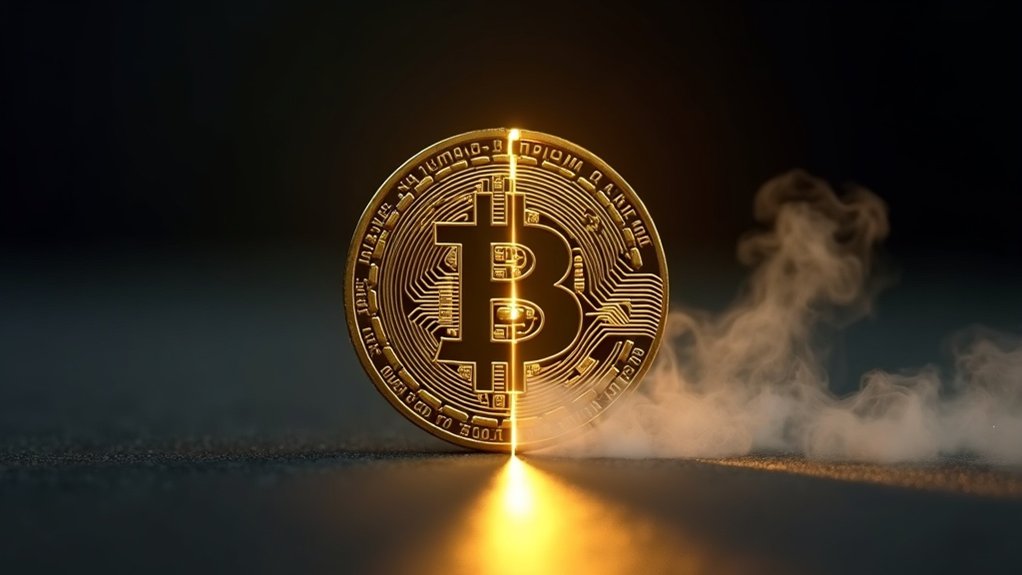Buying altcoins isn’t rocket science. First, select an exchange like Coinbase or Binance for mainstream coins, or try decentralized options like Uniswap for niche offerings. Create an account, complete KYC verification, and enable two-factor authentication. Fund your account via bank transfer or credit card, then search for your desired coin and place an order. Don’t leave everything on exchanges—consider hardware wallets for serious investments. The crypto universe extends far beyond Bitcoin’s shadow.
Where does one begin in the vast, often chaotic world of altcoin investing?
The cryptocurrency landscape extends far beyond Bitcoin, with thousands of alternative coins vying for attention.
The crypto universe sprawls endlessly, a digital galaxy where Bitcoin is merely the brightest of countless celestial coins.
Newcomers often feel overwhelmed.
They shouldn’t.
First step: choose a suitable platform.
Major centralized exchanges like Coinbase, Binance, and Kraken handle mainstream altcoins such as Ethereum and Solana without breaking a sweat.
For the more adventurous souls, decentralized exchanges like Uniswap offer peer-to-peer trading.
No middlemen.
More risk, too.
Niche coins often require specialized exchanges.
Do your homework before jumping in.
Check for regulatory compliance, user reviews on Trustpilot, and security track records.
Nobody wants to be the next crypto horror story.
Setting up an account follows a predictable pattern.
Email, password, personal details—the usual suspects.
Most centralized exchanges demand KYC verification.
Government ID, proof of address, the works.
Privacy enthusiasts hate it.
Regulators love it.
That’s life.
Enable two-factor authentication unless you enjoy being hacked.
Creating a clear investment strategy is essential before making your first trade.
Funding comes next.
Bank transfers, credit cards, even PayPal work on many platforms.
Depositing cryptocurrency or stablecoins like USDT is another option.
Fees vary wildly.
Credit cards cost more.
Bank transfers save money.
Start small to test the waters.
No need to go all-in immediately.
Ready to buy?
Use the exchange’s search function to find your chosen altcoin.
Market orders execute immediately at current prices.
Limit orders let you specify your price—patience required.
Smart investors start with small amounts.
Even smarter ones use Dollar-Cost Averaging to handle the notorious volatility.
Always double-check transaction details before confirming.
Mistakes hurt.
You can also use the Convert feature to quickly exchange USDT for your desired cryptocurrency without complex trading interfaces.
After purchasing, consider storage options.
Leaving coins on exchanges is convenient but risky.
Exchanges get hacked.
They go bankrupt.
Personal wallets give control but require responsibility.
Hardware wallets offer superior security for serious investors.
Software wallets work for smaller holdings.
Just verify compatibility before transferring.
For optimal protection against online threats, consider hardware wallet options that store private keys completely offline.
Lost coins don’t come back.
The altcoin world waits for no one.
Choose wisely.
Frequently Asked Questions
What Are the Tax Implications of Trading Altcoins?
Trading altcoins triggers taxable events—period.
Every sale, swap, or purchase using crypto gets hit with capital gains tax.
Hold less than a year? Short-term rates up to 37%.
Over a year? Long-term rates top out at 20%.
Lucky miners and stakers? That’s ordinary income.
Everything must be reported on Form 8949.
And starting 2025, things get even more complicated with wallet-by-wallet accounting.
Losses can offset gains, but only up to $3,000 against regular income.
The IRS isn’t messing around.
How Do I Secure My Altcoin Investments Against Hacking?
Investors protect altcoins by using cold storage solutions like hardware wallets—Ledger Nano S is popular.
Offline storage keeps private keys away from hackers. Period.
Two-factor authentication adds another layer of protection for exchange accounts. Never share private keys. Ever.
Smart investors back up recovery phrases in multiple physical locations.
Public WiFi? Terrible idea for crypto transactions. VPNs help mask activity.
Regular security audits aren’t overkill—they’re necessary. Hackers don’t sleep, neither should security practices.
Can I Mine Altcoins Instead of Buying Them?
Yes, mining altcoins is possible but comes with tradeoffs.
Setup requires technical know-how and initial hardware investment—typically a few hundred to thousand bucks for GPUs or CPUs. Ongoing electricity costs add up fast.
Mining profitability hinges on electricity rates, coin value, and algorithm difficulty.
Meanwhile, buying coins needs just ten bucks and a few clicks.
Mining makes sense with cheap power and technical skills.
For most folks? Buying’s simpler. Way simpler.
Which Altcoins Have Real-World Utility Beyond Speculation?
Several altcoins offer genuine utility beyond price speculation.
Remittix facilitates real crypto-to-fiat payments across 30 countries. Hedera supports actual tokenization of bonds and stocks. SUI powers regulated banking applications with high-speed performance. Tron enables cross-chain interoperability for practical applications.
These aren’t just fancy digital collectibles.
They’re solving real problems in payments, banking, asset tokenization, and blockchain communication.
Not just “number go up” technologies. Actual use cases. Imagine that.
What Warning Signs Indicate a Potential Altcoin Scam?
Altcoin scams often wave red flags everywhere.
Unrealistic promises of guaranteed returns? Pure fantasy.
Check for absent whitepapers or vague technical documentation—legitimate projects explain their tech clearly.
Anonymous team members? Huge problem.
Excessive hype without substance screams scam.
No real utility or use case? Just empty promises.
Limited online presence or sketchy websites indicate trouble.
Pressure tactics to “buy now before it’s too late” are classic manipulation.
The crypto world isn’t exactly short on fraudsters.









